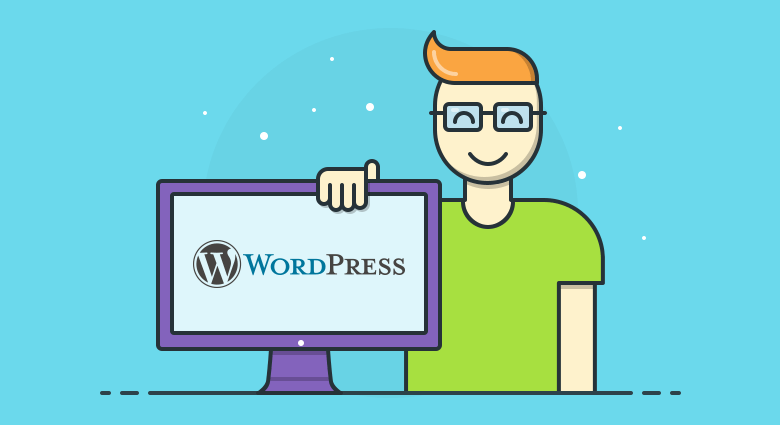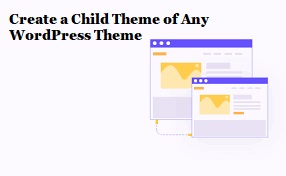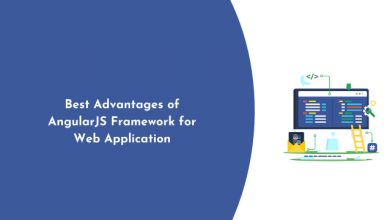What Are the Requirements for Becoming a WordPress Developer ?

WordPress has grown to be the most popular CMS (Content Management System) on the market. It currently powers slightly more than 40% of all websites on the Internet. If you learn how to become a WordPress developer, you can make a lot of money.
WordPress has grown in popularity for a variety of reasons. From its ease of use to its capacity to accomplish practically anything with the appropriate theme and plugin combinations, everything works together to drive general popularity.
WordPress development is also a popular option. If you know how to code for WordPress, chances are you can turn that talent into a decent career.
In this essay, I’ll go through some simple steps you may take to learn how to become a WordPress developer.
What exactly is a WordPress Developer?
WordPress website design and WordPress development are not the same thing. While you can accomplish both, they are not the same thing. Simply described, a WordPress developer is someone who specializes in the WordPress ecosystem and infrastructure.
A WordPress specialist does not only construct, administer, and design websites, but also creates themes and plugins and becomes more active in the WordPress core. Their main focus is on developing and manufacturing innovative products.
However, in order to avoid limiting what WordPress developers accomplish, they are also involved in a variety of other parts of development. Among them are the following:
- Themes
- Plugins
- Resources
- Wireframes
- Site Migration
- Redesign
- SEO
- Marketing
As you can see, there are several WordPress developer jobs and activities to pursue once you have developed your talents.
Let’s go over the steps required to become a WordPress developer.
How to Become a WordPress Developer
Step 1: Learn Everything There Is to Know About Coding
As a result, there is frequently misunderstanding concerning coding and WordPress. Most people believe it is a popular CMS because it allows you to construct and design websites without knowing how to code. This is a correct assumption.
However, in order to become a WordPress developer, you must first grasp the foundations of programming and how to create it. Understanding the fundamentals of HTML, CSS, JavaScript, and PHP will be necessary not only for debugging and working on the platform, but also for developing themes and plugins.
Because WordPress is founded on PHP, it is critical that you are well-versed in this language. Knowing the fundamentals of the others will also be beneficial. Remember, the more you learn, the better your WordPress knowledge will be.
Step 2: Read as much as you can about WordPress and learn as much as you can about it.
So there’s a lot to learn about the ins and outs of WordPress. When you begin learning all of the coding languages, you should also become acquainted with all of the other elements of it.
There are numerous online resources available to help you learn more about WordPress. You’ll also come across a variety of instructions, as they’re posted all over the place. Participating in various communities will aid in the process.
Other WordPress-related resources to consider are:
WordPress Codex: This is the WordPress developers’ official online manual. It covers every conceivable topic. From simple website creation to sophisticated WordPress scenarios, we’ve got you covered. This is the place to go if you want to learn everything there is to know about this CMS platform.
Yes, there are dozens of places, blogs, podcasts, and learning platforms that offer various types of WordPress tutorials. However, the Envato Marketplace has a large selection of them, they cover everything, and they are reasonably priced.
WordPress Developer Resources: WordPress devotes a whole section of its website to developers. You may access code references, APIs, the Gutenberg editor, and a plethora of other developer-related tools from this page.
Step 3: Select a Focused Area
As previously stated, WordPress provides a plethora of different areas into which you can delve. Even with all of the areas of expertise available to WordPress developers, we can still divide them into three major categories. These are some examples:
- Development of the Core
- Theme Creation
- Plugin Creation
It’s not difficult to guess what you’d be working on the most if you choose one of the options above. Going into core development means you’ll be working on the primary core, modifying, building, and other things.
Theme development entails specializing in creating unique WordPress themes to sell to others for use in building websites.
Plugin development entails specializing in the creation of all the various sorts of plugins that go into making WordPress sites what they are.
You are free to work on any aspect of WordPress development that interests you. However, concentrating on one in particular may help you move further.
Step 4: Participate in the WordPress Community
As you may expect, the WordPress community is massive. There are other ways to gain access to it as well. You can visit message boards, blogs, and forums, as well as join communities in software tools such as Slack.
It is critical to get out there and be active because the more information you have access to, the more you will be able to learn in the long run.
Millions of individuals use WordPress and are involved in various WordPress-related activities. Participating in all of this not only allows you to get your name out there, but it also allows you to learn and see what everyone else is doing and talking about.
Indeed, you can use a service like Meetup to find WordPress events in your region.
Step 5: Create a Portfolio
Last but not least, you should begin to construct a portfolio. Portfolios are essential for anyone doing visual work such as development or graphic design. These enable you to demonstrate to others what kind of work you do, what jobs you’ve completed, and the types of finished items you produce.
Your portfolio can include projects, talents, information about development services, personal information, and anything else you believe is useful to potential customers. You can also display your portfolio on a website or utilize it to acquire other freelance gigs on platforms like Upwork.
Conclusion
At first, learning how to become a WordPress developer may appear out of reach. That being said, if you have a plan and know what steps to take, the road will be less tough than you imagined.
There are numerous things to learn on your path to becoming a WordPress developer. Take your time, immerse yourself in everything, and learn everything you can from experienced developers.
You’ll be creating WordPress themes and plugins for others to use and enjoy before you realize it.
Best wishes on your journey.




